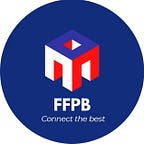Blockchain as an immutable decentralized database or the distributed ledger is used in various areas where transparency and reliability of stored data is needed. Perhaps it is with the blockchain the acute problem of user identification in digital services will be solved.
A challenge that cannot be addressed without blockchain
The world is irrevocably going digital. The digital transition brings new specific challenges. One of the most important is the misuse of personal data by digital service providers or the leakage of personal data. This leads to user’s damage in the social sphere, in work and even finances. In addition, each person uses several services that can be interconnected. Therefore, it may be impossible to revoke your permission to use personal data, which was given to one service from the set of interconnected services.
Centralized identification systems are becoming more complex every year and becoming more expensive. But the optimal solution has not been created. According to Forrester, the identity and access management systems market has nearly doubled in the past five years, from $8.09 billion in 2016 to $14.82 billion in 2021, which means growth almost 13% per year.
However, any centralized identification system makes users’ personal data vulnerable to cyber attacks. Therefore, security experts consider decentralized identity services as a reasonable, efficient and promising alternative.
What is DID?
Decentralized ID (DID) if to present in a simple way is an electronic wallet with which the owner provides proof of his identity to a third party. In the wallet, the owner stores digital identities received from government or authorized bodies. DID contains information about the user, including any verification information like passwords, usernames, PINs, biometrics, etc. DID is the part of authentication services that ensures that users are who they say they are. Thus, the proof of identity is provided from a single source, which is controlled only by the owner of the personal data. Users get the opportunity to control their data individually in the “digital sovereignty” concept.
Identity wallet is an application to create digital identity and manage access to personal data when requested by service providers. Service providers also use applications that are able to accept the authentication using the decentralized identity and access the wallet to get the DID. DID contains data such as the public key, verification information, service endpoints i.e. an URL at which user can gain access to service. In its core DID is designed in accordance with cryptography technology. Identity creation means that the cryptographic public and private keys are generated. A public key can be sent to services; a private key remains in the identity wallet. The registration record is stored on the blockchain, where it is sent with a public key. When the relevant issuers, such as the government or financial institutions, verify the identity, they add the relevant data and sign it with their private keys.
Authentication with DID
Thus, the identity wallet contains personal data such as name, age, address, education, financial information, employment and so on. With it, the user can pass authentication with the service provider. To do this, he simply shares his DID. The service provider seeks for the DID in blockchain (the distributed ledger). After the DID is found, the distributed ledger sends matching data to the identity wallet. Authentication completes when the user signs this transaction with his private key. After that, the user gets access to the services of the service provider. The key feature is that no personal data is transferred, but nevertheless the identity of the user is confirmed, and at the same time his creditworthiness and other characteristics important to the service provider are confirmed.
Digital identity for financial services
Experts connect the prospects of decentralized identity with decentralized finance (DeFi) first of all. DeFi brings financial services from the real world of fiat money to the blockchain. However, the blockchain does not necessarily have to be associated with cryptocurrencies. DID can be used in traditional finance (TradFi) just as well as in DeFi. The digitalization of banking services implies a wider use of digital identification. DID can even replace credit bureaus and promote credit development because this way of identification seems to be more relevant. Traditional credit institutions take into account the creditworthiness of potential customers for the entire time of their activity. And if there are cases of violation in the credit history of a person, this reduces the likelihood of obtaining a new loan for him. Even if the user committed violations long ago, and later became aa accurate payer, his credit history remains damaged. By refusing such a user, the credit institution may lose the chance to make money. With DID, this situation can be avoided. DID provides up-to-date data on the financial situation of the user. This will allow the credit institution to correctly assess the risks, issue a loan and make business.
Conclusion
According to Forrester, “decentralized identity (DID) is not just a technology buzzword: It promises a complete restructuring of the currently centralized physical and digital identity ecosystem into a decentralized and democratized architecture.” Blockchain has five indisputable advantages for identification:
- Reliability through the use of a consensus approach to data authentication.
- Data integrity due to their immutability in the blockchain.
- Security due to the hashing function and storing data in encrypted form.
- Confidentiality due to the fact that personal data is not transferred anywhere.
- Simplicity of storing of digital identities and ease of verification due to the automating information verification.
With DID, users can easily authenticate themselves and businesses save big money on security.
Interested to learn more about blockchain?
Follow the French Federation of Blockchain Professionals. Our monthly newsletter features the latest news about the current state of the crypto market, new regulations and blockchain.
To have the latest news and initiatives, and so much more, delivered to your inbox on a monthly basis, click here.
